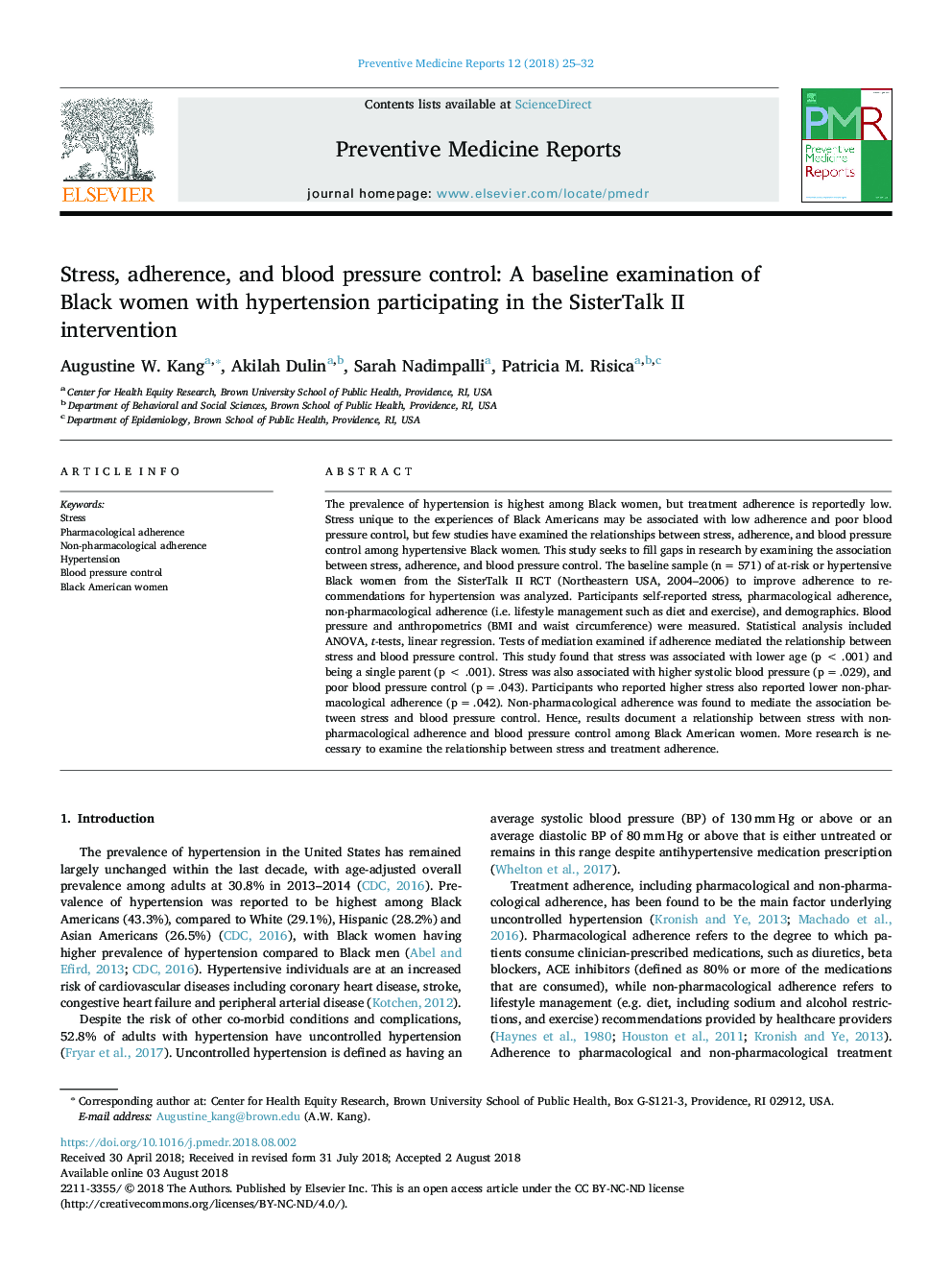| Article ID | Journal | Published Year | Pages | File Type |
|---|---|---|---|---|
| 8818445 | Preventive Medicine Reports | 2018 | 8 Pages |
Abstract
The prevalence of hypertension is highest among Black women, but treatment adherence is reportedly low. Stress unique to the experiences of Black Americans may be associated with low adherence and poor blood pressure control, but few studies have examined the relationships between stress, adherence, and blood pressure control among hypertensive Black women. This study seeks to fill gaps in research by examining the association between stress, adherence, and blood pressure control. The baseline sample (nâ¯=â¯571) of at-risk or hypertensive Black women from the SisterTalk II RCT (Northeastern USA, 2004-2006) to improve adherence to recommendations for hypertension was analyzed. Participants self-reported stress, pharmacological adherence, non-pharmacological adherence (i.e. lifestyle management such as diet and exercise), and demographics. Blood pressure and anthropometrics (BMI and waist circumference) were measured. Statistical analysis included ANOVA, t-tests, linear regression. Tests of mediation examined if adherence mediated the relationship between stress and blood pressure control. This study found that stress was associated with lower age (pâ¯<â¯.001) and being a single parent (pâ¯<â¯.001). Stress was also associated with higher systolic blood pressure (pâ¯=â¯.029), and poor blood pressure control (pâ¯=â¯.043). Participants who reported higher stress also reported lower non-pharmacological adherence (pâ¯=â¯.042). Non-pharmacological adherence was found to mediate the association between stress and blood pressure control. Hence, results document a relationship between stress with non-pharmacological adherence and blood pressure control among Black American women. More research is necessary to examine the relationship between stress and treatment adherence.
Related Topics
Health Sciences
Medicine and Dentistry
Public Health and Health Policy
Authors
Augustine W. Kang, Akilah Dulin, Sarah Nadimpalli, Patricia M. Risica,
